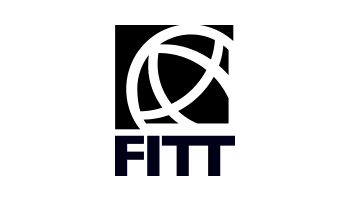COMM 140 - Communications
This introductory communications course emphasizes the development of reading, writing, listening and speaking business communication skills at a college level. Students write for various purposes and audiences and deliver short presentations to small groups. Students research, analyze, summarize and document information. Students self and peer evaluate written documents and oral presentations. Through reading, media response and discussion exercises, students improve their communication skills. Communicating in diverse teams and across cultures is emphasized.
FITT 205 - Products and Services for a Global Market
FITT Course: In the Products and Services for a Global Market course, you’ll learn how to adapt and conform your products and services to differences in regulatory, legal, cultural and consumer/client requirements in international markets. Analyzing how these differences may impact the cost, product design, packaging, labeling, product testing, and service delivery, and then developing strategies around these custom aspects, is key to your long-term success in any international target market.
COMM210 - Intercultural Communication
This course prepares students to meet the challenges of intercultural business communication. Success in international business requires understanding and sensitivity in order to navigate the various differences one will encounter in a multi-cultural setting. From contrasting values and etiquette, to differences in language and non-verbal communication, students will develop the awareness and skills to transcend such differences within a multicultural environment, both international and domestic. Through assignments, readings and in-class discussion, students will gain the practical knowledge and skills for a variety of communication-based tasks, from cross-cultural negotiation to effective business correspondence.
FITT 220 - International Trade Finance
FITT Course: The course International Trade Finance centres on the strategies and knowledge required for a successful international trade transaction. To be successful in international trade, organizations need to optimize payment options, risk mitigation strategies, use of financial tools, contracts and effective cash flow management. The course also covers techniques and plans to resolve disputes should they arise.
FITT 260 - International Sales and Marketing
FITT Course: The International Sales and Marketing course emphasizes marketing as key in ensuring an organization’s product or service is seen to fit the needs and interests of an international target market. While marketing can create the demand, an effective sales strategy is essential to profit from this demand. This course details considerations an organization must make when promoting and selling products and or services beyond its domestic borders.
FITT 265 - International Market Entry Strategies
FITT Course: The course International Market Entry Strategies examines what individuals in organizations need to know and do to ensure the success of new international ventures. International trade practitioners must research market entry options, analyze these options, and then select the most effective entry strategy and strategic partnerships for their needs. The chosen strategy must be successfully implemented and managed.
FITT 270 - Global Value Chain
FITT Course: The Global Value Chain course examines aspects of the primary activities of Distribution and Inventory Management, and the supporting activities of Document Management and Procurement, which are integral to international trade logistics. Doing business in/with foreign markets requires consideration of different regulatory, financial, geographical, cultural and consumer requirements.
FITT 275 - Feasibility of International Trade
FITT Course: The course Feasibility of International Trade examines the critical steps and decisions needed to determine the feasibility of potential international trade initiatives. Market research, analysis of organizational readiness, cost analysis, and risk analysis are all required in order to decide if a concept fits with a company’s strategic direction and improves the bottom line of an organization. Risk analysis then leads to the development of strategies to mitigate identified risks.
PPD 100 - Success in the Classroom
This is a first semester course that provides students with the tools they need for academic success. The course offers skills to help students with the transition to post-secondary education, to help them learn how to be a successful student and to make the most of their learning experience.
PPD 150 - Success in the Workplace
This course focuses on preparing students for the Canadian workplace, either in their future career or the work-integrated learning component of their Canadian College program. Students will examine their own career goals as well as topics such as safety, time management, and critical thinking, in order to help them transition into and succeed within a Canadian work environment.
PPD 200 - Business Computers 1
This course is the first part of an introduction to the computer skills required in business today. It provides the student with an introduction to computer file management and Microsoft Word.
PPD 250 - Business Computers 2
This course will introduce and further develop Microsoft Excel skills that the student will need use in subsequent semesters and in the business world. Upon completion of the course, students will be able to prepare tables and graphs, use input fields, understand and be able to use Microsoft Excel insert functions and specialized functions. These functions include goal seeking, solver and data analysis.
ACCT 101 - Accounting 1
This course introduces financial accounting concepts. Students learn the double-entry accounting system, including the preparation of financial statements, closing entries, internal controls for cash and payroll accounting.
ACCT 102 - Accounting 2
This course is a continuation of Accounting 1 and offers further insight into the field of accounting and how it serves the needs of the business community. We take an in-depth look at some specific items on the balance sheet, accounts receivable, inventory, capital assets, and current liabilities as well as the use of special journals, subsidiary ledgers, and end with an introduction to corporations. Applications of the principles learned will be applied to the preparation of financial statements, and in-depth problems, which emphasize the importance of accounting in decision making.
BUS 100 - Business Math
This is a fundamental course in business mathematics. Topics covered include mathematics of merchandising, simple interest, compound interest, annuities, loan amortization, and cost-volume-profit analysis. This course is designed to encourage students to develop mathematical skills and abilities by applying them to common business situations. Regardless of his or her prior math experiences, this course will enhance the learner's ability to use mathematics to solve problems and make sound decisions from both a career and personal perspective.
BUS 130 - Operations Management 1
This course introduces the learner to the operations management profession. An operations manager is concerned with the planning, decision-making and actions required to produce and deliver the organization’s goods and/or services, as opposed to marketing its products, managing its human resources or accounting for its finances. Operations managers work in virtually all enterprises – manufacturing, service, government, for-profit and not-for-profit. Operations managers work in many parts of the organization, including Purchasing and Supply Chain, Inventory Management, Quality Management, Scheduling, Transportation and Logistics, and Front-line Supervision to name a few.
BUS 141 - Marketing 1
You’ll learn how to adapt and conform your products and services to differences in regulatory, legal, cultural and consumer/client requirements in international markets. Analyzing how these differences may impact the cost, product design, packaging, labeling, product testing, and service delivery, and then developing strategies around these custom aspects, is key to your long-term success in any international target market.
FOREX 101 - Introduction to Foreign Exchange
An Introduction giving a basic understanding on how the Foreign Exchange Market works with the trading of currency pairs, using the study of various techniques and rule based structures to buy and sell currencies.
FOREX 102 - Application of Forex Trading
Taking the elements learned in FOREX 101 students are guided into applying the lessons learned into real application placing trades on a demo account. A more comprehensive detailed learning of how to become a consistently profitable currency trader.






